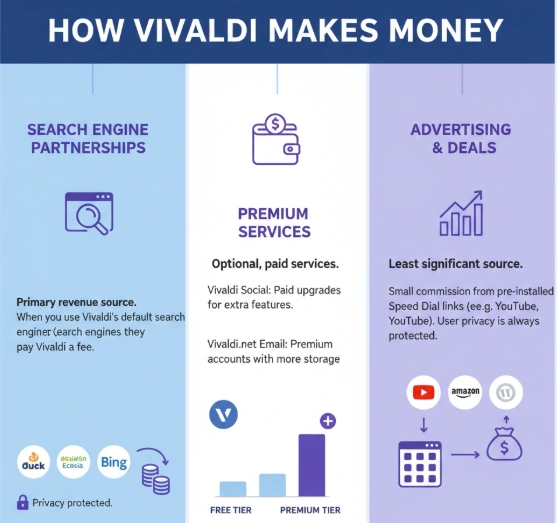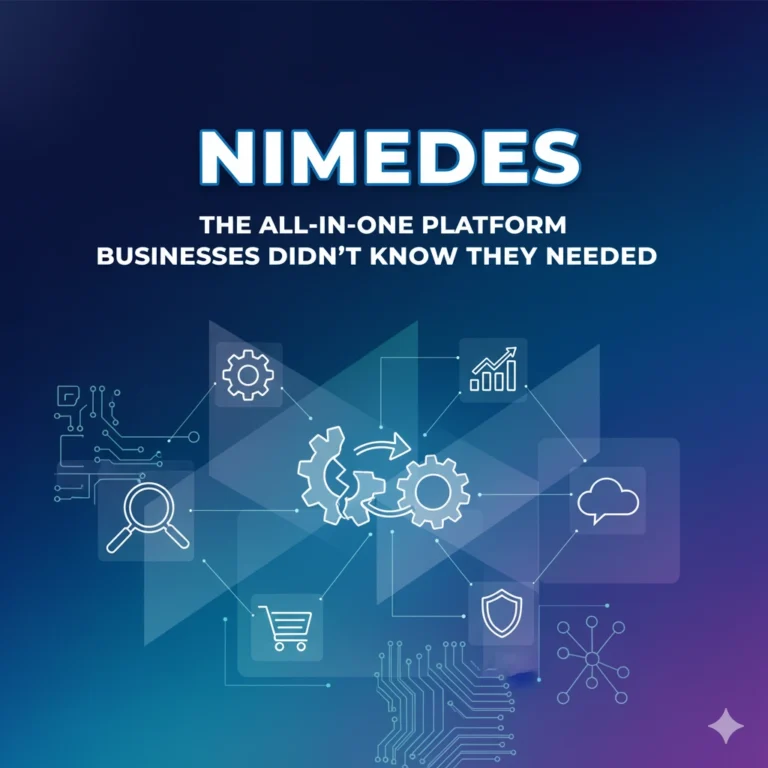Vivaldi Browser Review: The Most Customizable Browser You’ll Ever Use
When you think of web browsers, chances are Chrome, Safari, or Firefox come to mind. They’re fast, familiar, and… pretty much look and feel the same. But what if you wanted a browser that actually adapts to you instead of the other way around? That’s where Vivaldi Browser steps in.
Created by Jon von Tetzchner, the co-founder of Opera, Vivaldi has quickly built a loyal following by doing what other browsers don’t: putting control back in the hands of the user. Whether you’re a privacy enthusiast, a multitasker drowning in tabs, or someone who just likes things a certain way, Vivaldi is designed to bend to your workflow—not force you into its defaults.
Why Vivaldi Browser Feels Different
Most browsers keep things simple. That’s fine for casual use, but if you live online, “simple” often means limited. Vivaldi takes the opposite approach: it gives you tools, customization, and privacy features built right in—no endless extensions required.
Deep Customization
Vivaldi isn’t just about switching between light and dark mode. You can rearrange toolbars, tweak menus, adjust tab layouts, and even write your own CSS tweaks if you’re into that. Want tabs on the side instead of the top? Done. Prefer a distraction-free setup with no borders or UI clutter? Easy. If you’ve ever wished your browser “just worked the way you think,” Vivaldi gives you that power.
Built-in Productivity Tools
Instead of juggling five different apps, Vivaldi rolls them into one space. Some highlights include:
- Tab stacking & tiling – Group tabs together or view multiple pages side by side
- Workspaces – Keep personal, work, and research tabs completely separate
- Notes & feed reader – Jot down ideas or follow RSS feeds without extra apps
- Mail & calendar – Manage email and appointments right inside the browser
Everything is optional, so you only use the tools you actually want.
Privacy Without the Guesswork
If you’ve ever felt uneasy about how much data Chrome and others collect, you’ll appreciate Vivaldi’s stance. The company doesn’t track you, doesn’t sell your browsing history, and doesn’t profile you for ads.
Key privacy features include a built-in ad and tracker blocker, end-to-end encrypted sync across devices, private browsing that doesn’t leave a trace, and options for secure DNS with phishing protection. Your data stays yours.
Fewer Extensions, More Features
Vivaldi comes preloaded with tools you usually have to patch together with add-ons, such as:
- Full-page or selective screenshots
- A reading list to save articles for later
- Web panels that pin sites like Twitter or Slack to a side panel
- Speed dial for quick access to favorite sites
This reduces your reliance on extensions, improving both speed and security.
Works Across Devices
Whether you’re on desktop, laptop, tablet, or phone, Vivaldi keeps your setup consistent. Bookmarks, tabs, notes, and even history can be synced with encryption so nobody—including Vivaldi—can read it.
How Vivaldi Compares to Other Browsers
- Versus Chrome – Chrome is fast but tracks everything. Vivaldi is just as compatible (thanks to its Chromium base) but privacy-focused.
- Versus Brave – Brave blocks ads well, but Vivaldi offers deeper customization and multitasking tools.
- Versus Firefox – Firefox is strong on privacy, but Vivaldi adds advanced tab management and integrated productivity features.
Pros and Cons of Vivaldi Browser
Pros:
- Endless customization options
- Privacy-first design with no tracking
- Productivity tools like email, calendar, notes, and RSS
- Compatible with Chrome extensions
- Excellent tab management features
Cons:
- Can be heavy on system resources
- Might overwhelm beginners who want simplicity
- Mobile version isn’t as full-featured as desktop
How Vivaldi Makes Money

You might wonder how Vivaldi funds itself if it doesn’t sell your data. The answer is search partnerships with providers like DuckDuckGo, Ecosia, and Startpage, plus free companion services like Vivaldi Mail and blogging tools. Because the company is privately owned by employees, it doesn’t face outside pressure to compromise on privacy.
Conclusion
Vivaldi isn’t for everyone. If you just want a no-frills browser to check email or scroll social media, Chrome or Safari will do.
But if you:
- Keep dozens of tabs open
- Care deeply about privacy
- Want a browser that adapts to your workflow
- Prefer integrated productivity tools over cluttered extensions
…then Vivaldi Browser is absolutely worth trying. It’s not just another browser—it’s your browser, shaped exactly how you want it
FAQs
Q1: What is Vivaldi Browser?
A: Vivaldi Browser is a free, Chromium-based web browser designed for customization, productivity, and privacy. It offers advanced features like tab stacking, workspaces, notes, and built-in mail.
Q2: Is Vivaldi Browser free?
A: Yes, Vivaldi is completely free to download and use. The company generates revenue through search engine partnerships and complementary services, not by selling user data.
Q3: Which devices support Vivaldi Browser?
A: Vivaldi is available on Windows, macOS, Linux, Android, and iOS, offering cross-platform syncing with end-to-end encryption.
Q4: How does Vivaldi Browser protect privacy?
A: Vivaldi does not track user activity, has a built-in ad and tracker blocker, supports private browsing, and encrypts synced data across devices.
Q5: Can I customize Vivaldi Browser?
A: Yes, Vivaldi allows extensive customization of themes, toolbars, tab layouts, mouse gestures, keyboard shortcuts, and even advanced CSS modifications.






